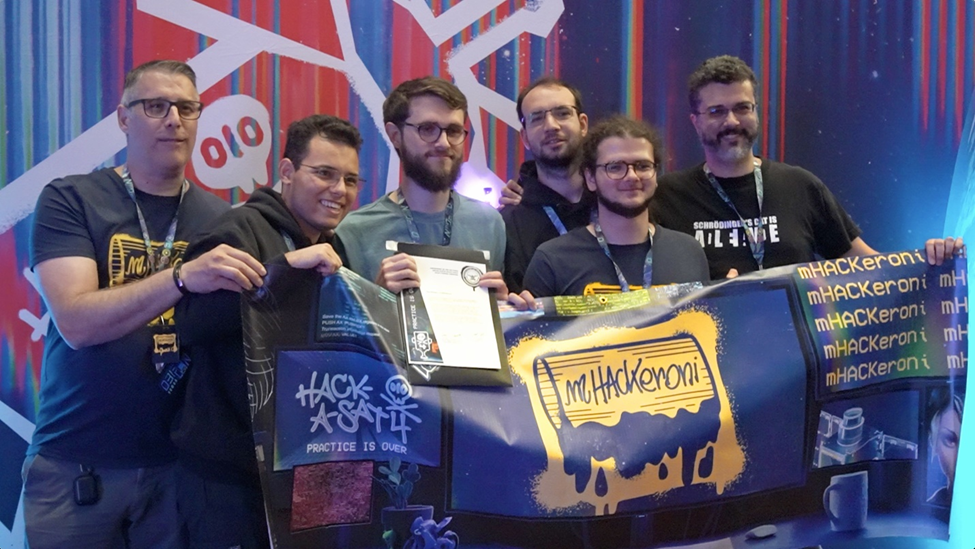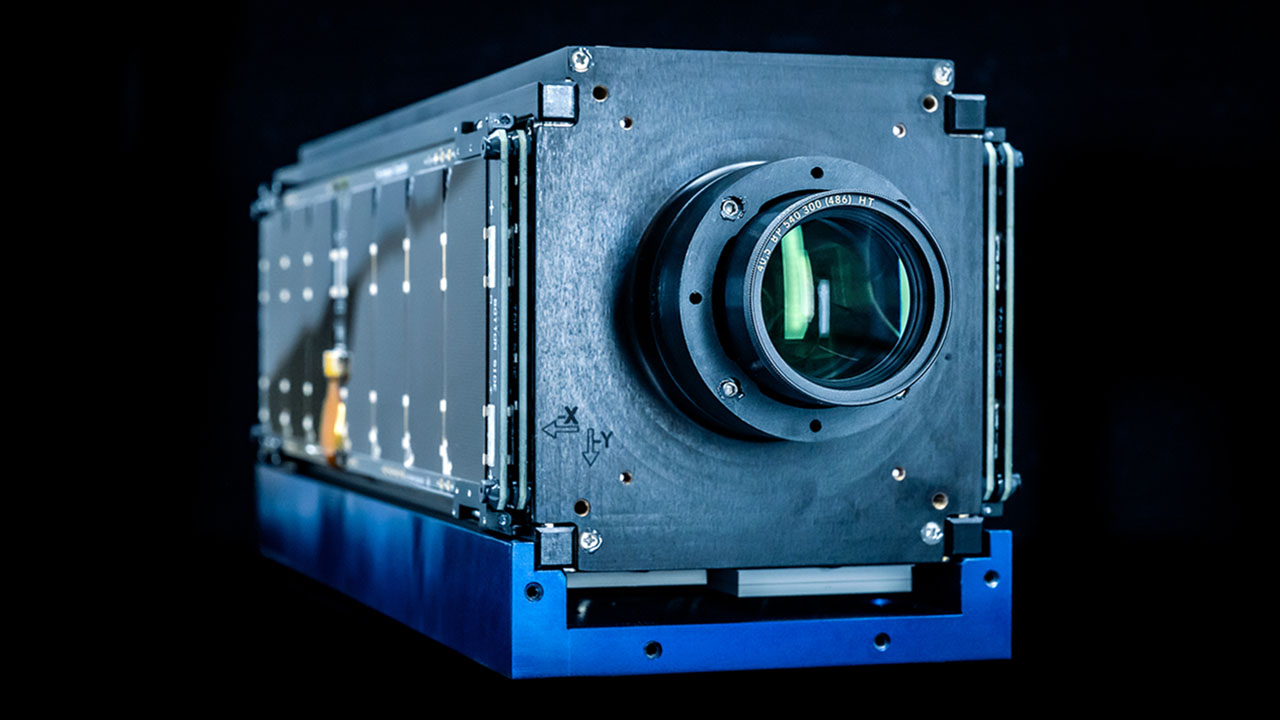
The U.S. Air Force has announced the winners of its first-of-its-kind satellite hacking contest.
This year's Hack-A-Sat competition tasked teams with hacking into an actual satellite on orbit. This was the first year that the competition tasked teams with hacking an actual live satellite zooming above Earth; previous years used simulated satellites on the ground.
The small cubesat, known as Moonlighter, was developed by the Aerospace Corporation and the U.S. Air Force Research Laboratory and launched on June 5, 2023 atop a SpaceX Falcon 9 rocket along with a cargo payload for the International Space Station.
Five teams competed in the Hack-A-Sat competition from Aug. 11 to Aug. 14 as part of the annual DEF CON hacking convention in Las Vegas. The winning team this year was "mHACKeroni," a group consisting of members of five Italian cyber research teams. The first place prize was $50,000. In second place, winning $30,000, was the Polish cyber research team "Poland Can Into Space." And in third place, the joint British-American team "jmp fs:[rcx]" won $20,000.
Related: World's 1st 'hacking sandbox' satellite and more to ride on SpaceX's next NASA cargo launch
In this year's competition, teams were tasked with hacking into Moonlighter in order to bypass the satellite's restrictions on which targets on the ground it can observe, command it to take a picture of that target and then download that image to a ground station.

By hosting competitions such as Hack-A-Sat, the U.S. Air Force and U.S. Space Force's Space Systems Command aim to identify weaknesses that can be used to improve the security of satellite systems overhead.
"We are so proud of the entire Hack-A-Sat effort, and particularly the development of Moonlighter as the first and only hacking sandbox in space," Col. Neal Roach of Space Systems Command said in a statement. "Hack-A-Sat has raised public awareness on the importance of space cybersecurity and has helped to strengthen the industry, security and government partnership that we need to build more resilient space systems that will keep our nation and our world secure."
The issue of satellite cybersecurity has taken center stage in recent years. Just last year, Elon Musk reported that SpaceX's Starlink satellites have experienced frequent cyberattacks following Russia's invasion of Ukraine.
And cyberattacks go back much further than that; in 2011, two U.S. government satellites were hacked by suspected Chinese military groups.







